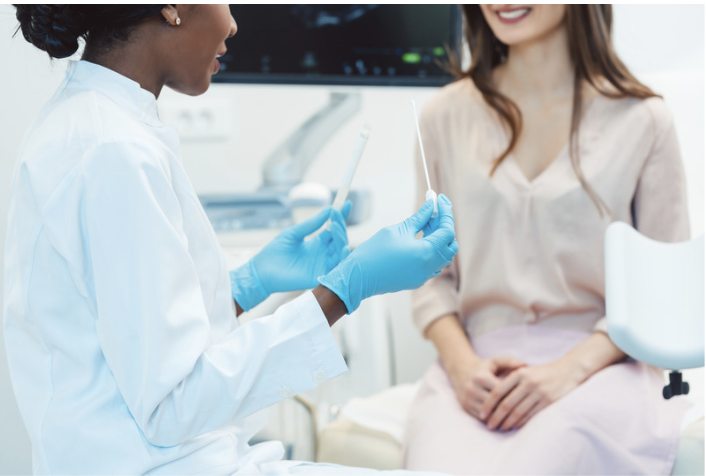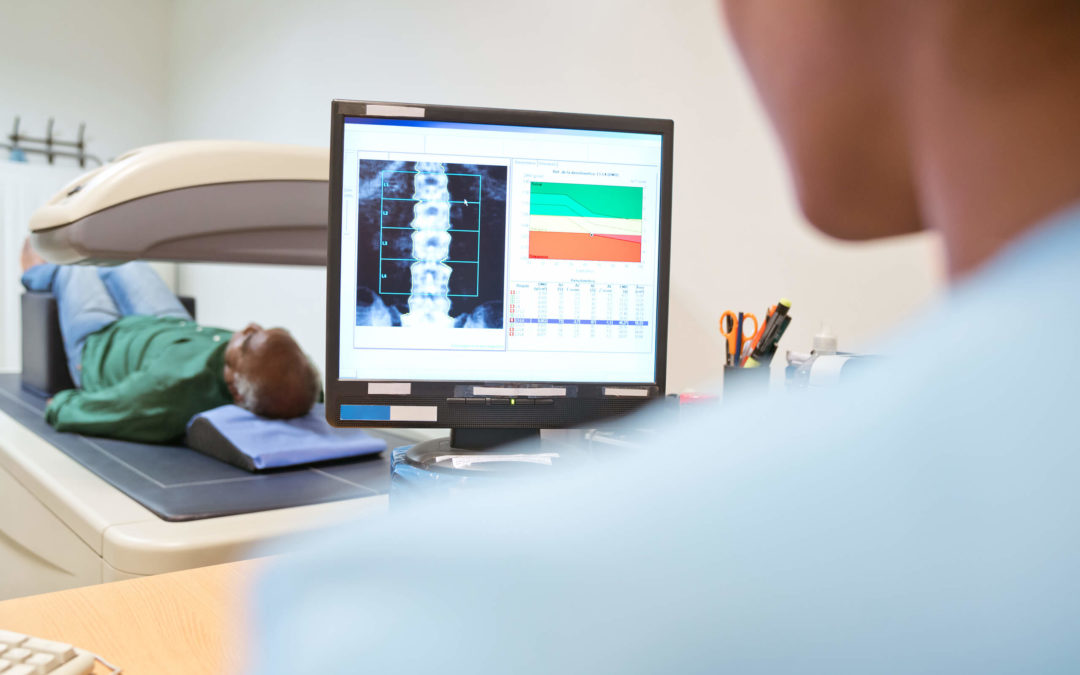If you are getting an echocardiogram in our Southfield office, you may not fully understand how much this diagnostic test can reveal about your heart. Through an echocardiogram, our internal medicine doctors can not only assess how your heart is performing, but also how it looks in order to identify conditions that may be affecting your overall health.
Following are the basics regarding what an echocardiogram is and what you can expect during your appointment.
What Happens During the Test
An echocardiogram uses high frequency sound waves to create pictures of your heart. These can include the chambers, valves, and walls, as well as the aorta, arteries, and veins attached to your heart. The test may be referred to as an echocardiography, diagnostic cardiac ultrasound, or simply “echo”.
The procedure is harmless, painless, non-invasive, and has no side effects.
During the procedure, you would typically be asked to lie on a table on your back, and small metal disks called electrodes will be placed on your chest. These disks have wires that connect to the electrocardiograph machine, commonly referred to as an EKG monitor.
Afterward, a device called a transducer will be passed over various areas of your chest. As it is used, the probe produces sound waves that bounce off your heart and “echo” back to the probe. These sound waves are changed into pictures that can be viewed on a video monitor instantly as the probe is moved along your chest.
A gel-like substance may be placed on your chest and/or the transducer to help it glide smoothly and enable the sound waves to pass through your skin.
The test may take anywhere from 20 minutes to one hour, typically about 40 minutes. During this time, the doctor or technician performing the echocardiogram may ask you to hold still or hold your breath briefly in order to obtain better pictures.
How an Echocardiogram Can Help Identify and Diagnose Heart Conditions
The echocardiogram shows how your heart moves, its pumping strength, its size, its shape, and the size, thickness, and movement of the walls.
An echocardiogram can reveal many types of heart disease, including valve, myocardial, pericardial, and congenital heart diseases.
Among other issues, the test can reveal if:
- The heart valves are working properly
- Blood is leaking backward through your heart valves
- The heart valves are too narrow
- There are growths, tumors, or blood clots
- There are problems with the lining of your heart
- There are abnormal holes between the chambers
Our internal medicine doctors here in Southfield may recommend an echocardiogram for the following reasons, among others:
- The doctor needs to monitor your heart after a heart attack.
- The doctor has concerns about the potential for future heart attacks or other heart-related conditions.
- You are currently experiencing chest pain or shortness of breath.
- You are experiencing heart murmurs or palpitations, which could be caused by psychological or physiological conditions.
- Regular echocardiograms may be advised if you have or at risk for heart valve disease or other conditions.
- Echocardiograms can help a physician identify blood clots that may lead to strokes.
- Chemotherapy can have negative effects on the heart, so an echocardiogram may be used occasionally to monitor your heart health during cancer treatment.
Without insurance, echocardiograms at various hospitals and medical facilities can cost anywhere from $1,000 to $3,000. Many health insurance companies may cover echocardiograms, although you may have a copay.
Next Steps
There’s very little you need to do before an echocardiogram in our Southfield office, although you may have to follow up afterward if heart-related medical concerns are identified.
Depending on what those issues are, you may have to take precautions to avoid future problems; change your lifestyle to reduce the current condition; use medications to control the issue; undergo a surgical procedure; or take additional tests in order to further diagnose your condition.
If you have concerns about your heart health, make an appointment to see Dr. Laina Feinstein or Dr. Max Feinstein by calling our office or sending us a message online.

